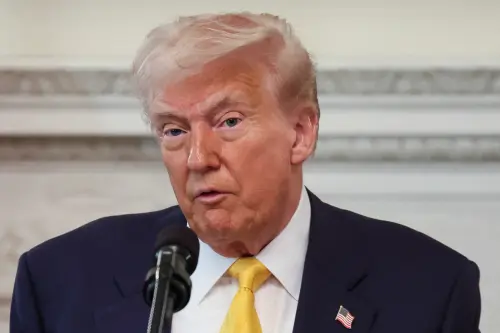On Friday, President Donald Trump instructed his trade chief to reinitiate investigations to impose tariffs on imports from countries enforcing digital service taxes on U.S. technology companies. According to a White House official, Trump directed his administration to consider actions like tariffs "to combat the digital service taxes (DSTs), fines, practices, and policies imposed by foreign governments on American companies." The White House official emphasized, "President Trump will not tolerate foreign governments appropriating America's tax base for their own gain." The memorandum instructs the U.S. Trade Representative's office to revisit digital service tax investigations from Trump's first term and scrutinize additional countries using digital taxes "to unfairly target U.S. companies," as per a White House fact sheet. Digital service taxes targeted at major U.S. tech giants including Google, Facebook, Apple, and Amazon have long been a concern for various U.S. administrations. Countries such as Britain, France, Italy, Spain, Turkey, India, Austria, and Canada have implemented these taxes on revenue from digital services within their jurisdictions. During Trump's first term, the USTR initiated Section 301 unfair trade practice investigations against several of these countries, leading to retaliatory tariffs on specific imports. Trump highlighted the issue stating, "What they're doing to us in other countries is terrible with digital," and previously indicated plans to impose tariffs on goods from Canada and France due to their digital service taxes. In 2021, Katherine Tai, Biden's trade chief, pursued over $2 billion worth of imports from six countries but paused them to allow negotiations for a global tax agreement. Negotiations for an alternative to digital taxes have stalled, and Trump's memo also calls for a review of policies in the EU and Britain regarding U.S. firms' development and use of products that may undermine free speech or promote censorship. When Trump took office, he withdrew the U.S. from the global tax agreement and ordered the U.S. Treasury to prepare protective measures against the 15% global minimum tax, which was never ratified by Congress. Trump's administration did not disclose the tariff rate or the value of goods that would be targeted for retaliatory duties. In response to this, in 2021, USTR announced tariffs on a range of goods from several countries, including Britain, Italy, Spain, Turkey, India, and Austria, as well as on French cosmetics, handbags, and other goods.
World.Alpha-News.org ➤ The news of the world is here
Trump Directs Trade Chief to Reinstate Tariff Retaliation for Digital Taxes
